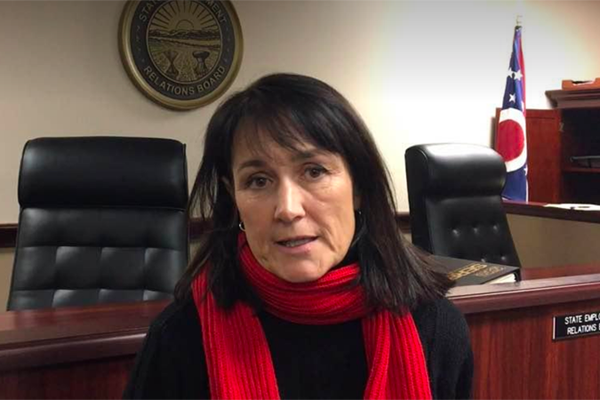
Excerpt from the Dayton Daily News
The State Employment Relations Board ruled against Wright State University’s administration Sunday, allowing the faculty strike to continue.
The board’s decision came after an emergency meeting was called for Sunday during which attorneys for the administration and the Wright State chapter of the American Association of University Professors each made their cases.
The administration on Thursday filed an unfair labor practice complaint with the state, asking it to declare the faculty strike unauthorized.
A SERB ruling in favor of the university would have required the union to cease all strike activity immediately, according to WSU.
Union ‘delighted but not surprised’ by ruling
Noeleen McIlvenna, a WSU history professor and contract administration officer for the union, blamed the board of trustees for forcing the hearing Sunday. Ohio Revised Code requires SERB to make a decision within 72 hours of when a complaint claiming a strike is unauthorized is filed.
“We are delighted but not surprised. We knew it was a ridiculous filing,” McIlvenna said. “We have done everything right and everything legal and this is just one more example of wasted student tuition dollars spent on attorneys filing these ridiculous complaints.”
Wright State spokesman Seth Bauguess declined to comment on the outcome of the hearing. During the meeting, the administration’s attorney Daniel Guttman told SERB that regardless of the outcome, negotiators for the administration and union planned to meet about the labor dispute later Sunday.
WSU claimed union ‘sabotaged’ plans to keep classes going
In its Thursday filing with SERB, the administration asked the board to declare the strike unauthorized in part because of workload and actions taken by AAUP-WSU leaders. Workload, the administration claims, is prohibited from being part of collective bargaining, according to WSU.
In its complaint, the administration said the strike should be considered unauthorized because the union’s leaders “intentionally sabotaged” plans to keep classes going by telling members to mislead the administration about whether they would continue teaching.
The complaint also accused unionized faculty of removing course information from an electronic WSU system to make it more difficult for the university to offer courses during the strike.
During his one-hour presentation, Guttman told the board that precedent states that “gamesmanship” is prohibited in public sector strikes. The union’s attempts to prevent the university from knowing how many classes it needed to temporarily staff should be considered that type of “gamesmanship,” Guttman said.

